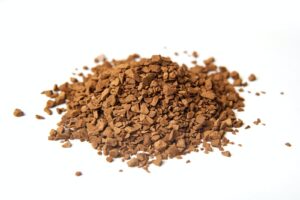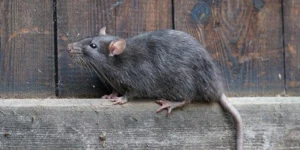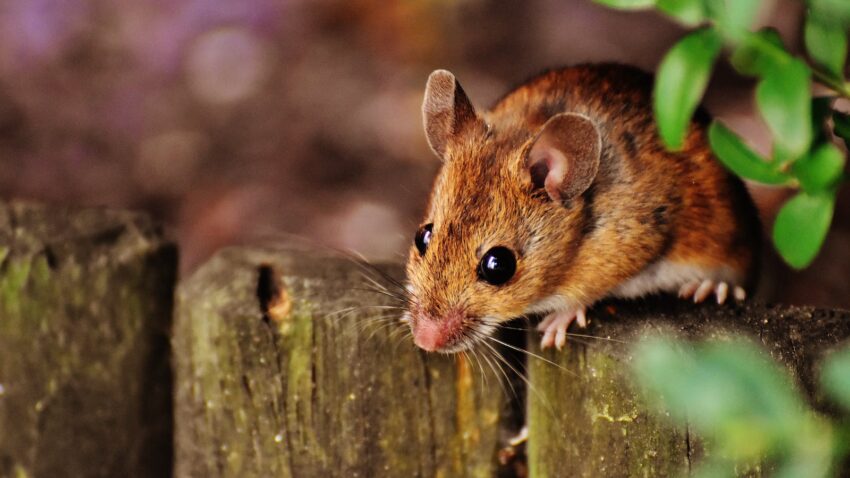A rat is a wonderful creature, regardless of how they may become disagreeable guests once inside your home. Aside from their intellect, they are recognized as agile pests with exceptional talents including jumping, hiking, and swimming.
Rats may have poor vision, but they have a very keen sense of smell that they will utilize for a variety of functions, including detecting prospective food sources from a distance and communicating with other rats.
Rats Despise These Scents
In the United States, there are two varieties of rats. Roof rats and Norway rats are also known as sewer rats, brown rats, and common rats. It’s all the same creature. Roof rats are sometimes referred to as black rats, ship rats, and house rats. Once again, it’s the same animal.
This is significant because these two unique rats congregate in quite different areas of the house and yard. Norway rats, for example, like to live on the ground floor and are commonly seen in basements and garages. Roof rats are found in attics, trees, and top floors of homes. It is critical to learn where to repel rats while repelling them. Repelling Norway rats with smell deterrents placed on an upper-level window, for example, will be ineffective.
Roof rats will not be deterred by spraying chilli powder about the garage, since these rodents are more likely to be relaxing upstairs in your attic. So, if you can recognize your rat, get ready to repel it using natural odours!
Rats despise ammonia.
Ammonia has a very strong chemical odour. In the household, it takes the form of ammonium hydroxide. Many people use it to clean surfaces like bathtubs, tiles, and sinks. Another application for home ammonia is rat repellent. The simplest approach to using ammonium hydroxide to repel rats is to soak some rags or cotton balls in it and place them in open bags or containers.
Place the bags/containers in places where you wish rodents to stay away. Consider attic spaces or windowsills, basement drainpipes, or spots where rat droppings have been discovered.
Rats are deterred by used coffee grounds.
Coffee grounds, particularly hot-brewed coffee grounds, have a bitter flavour as well as a pungent odour. This double-whammy is an excellent rat repellant. Obviously, you don’t want to just smear those squishy wet coffee grounds all over the place. Instead, approach ammonia in the same way. Put your used coffee grinds in an open plastic bag or container and place them near your hot regions.
If you need to discourage rats from your garden, simply throw them in the garden. Coffee grounds are excellent for composting, so they will likely help fertilize your plants while also repelling pests such as rodents and deer!
 Cloves Keep Rats Away
Cloves Keep Rats Away
Another effective rat repellent is cloves and clove oil! Rats despise the fragrance of cloves since it not only smells clean but also spells spicy – it’s a two-for-one! To get rid of rats, wrap entire cloves in a cloth and place them in regions both outside and indoors. Placing whole cloves in vents and any other gaps you notice in your home’s walls will also assist.
Soaking cotton balls in clove oil and distributing them about your outdoor and indoor locations will work wonders if you use it!
 Rat Repellent: White Vinegar
Rat Repellent: White Vinegar
Without a doubt, white vinegar has a distinct odour. It has a spicy flavour, a sting to it, and is generally intense and unpleasant. But enough about me and why I dislike the scent of white vinegar; what is crucial here is that rats despise it. White vinegar not only smells awful to rats, but it can also hurt them if they take a lick at it. The strange thing about white vinegar is that it frightens rats, especially if you already have nesting rats.
Adding white vinegar by soaking cotton balls in it, or producing diluted water and white vinegar spray and spraying it outside your home (not suggested for indoors due to the overpowering effect) – white vinegar can confuse any rodents that have already been an issue.
White vinegar is quite pungent and frightening to a rat, especially if it was not one of the first odours the rats detected while deciding where to make their nest. Adding white vinegar just makes rats feel as if something new and unfamiliar has entered their habitat, and something new and unknown signifies a threat.

Other Rat-Resistant Measures
The most effective natural pest repellents will be a mix of many strategies. Just because your smell deterrent does not entirely repel them does not mean it is ineffective. You may only need to add one more barrier to keep them away forever.
 Cloves Keep Rats Away
Cloves Keep Rats Away Rat Repellent: White Vinegar
Rat Repellent: White Vinegar

